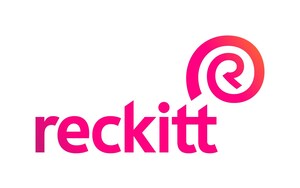PARSIPPANY, N.J., June 2, 2021 /PRNewswire/ -- A recent study evaluating micronutrient adequacy of diets consumed by young children (aged 1-6) in the United States found that although most children had adequate intakes of most vitamins and nutrients, there were several areas where significant nutritional inadequacies could be cause for concern, specifically calcium, vitamin D, iron and DHA.
The study, published in Nutrients earlier this year, used National Health and Nutrition Examination Survey (NHANES) data to evaluate nutritional adequacy in 9848 children in the United States, aged 1–6 years, while also examining differences based on age, race/ethnicity, and family income.
The years between the ages of one and six are characterized by rapid physical, social, and cognitive growth and a nutritionally adequate diet consisting of nutrient dense fruits and vegetables, whole grains and healthy proteins is important to a child's development. Yet, this new study shows that for many children, their diet is not providing them with adequate amounts of key nutrients they need in this important timeframe.
"Getting children to eat a well-rounded diet can be a challenge, as any parent knows," said Dr. Natasha Burgert, board-certified pediatrician at Pediatric Associates in Overland Park, KS and consulting physician for Reckitt. "It's important as many parents as possible are aware of the important role of nutrition, particularly the first 1,000 days of a child's life. What's most concerning is that many children aren't getting adequate or recommended amounts of nutrients that are important for healthy development such as calcium, iron, vitamin D and DHA. If we can help parents and physicians identify the potential nutrient gaps children might face during this important time for young children, we can help ensure they're also equipped with solutions to provide a well-balanced diet that helps support healthy growth and development."
There are four areas in particular where the nutrient gaps concern researchers:
Iron
Adequate iron intake is needed for children's growth, brain development, and immune function. While iron intake appeared adequate in young children, it's estimated that approximately 1.2 million children in the US 1-3 years of age may have iron deficiency as measured by serum ferritin and over 430K may have anemia as measured by hemoglobin. In comparison with other races/ethnicities sampled, Non-Hispanic Black children appeared to have the highest deficiency (11.7% 1-6 years) and Non–Hispanic White children (10.7% 1-6 years) the lowest rates of iron deficiency.
Vitamin D
Optimal vitamin D intake and synthesis are necessary to support healthy bone growth in children. The proportion of children not meeting the EAR (Estimated Average Requirement) for vitamin D appeared to increase with increasing age: 79.2% for 1–2 years; 87.3% for 2–3 years; 90.8% for 4–6 years, with a significant difference between those aged 1–3 years versus 4–6 years (p < 0.05).
DHA
DHA is important as brain myelination, or the development of connections that are important to healthy central nervous system functioning, occurs throughout childhood and adolescence. Yet almost the entire population (97–99%) of children aged 1–6 years had DHA intakes below the expert recommendations of 70–100 mg/d. In fact, the mean intake of DHA was only 24 mg/d.
Calcium
Calcium is a building block of healthy bones and affects bone strength; however, it is estimated that 17% of toddlers 12-23 months have inadequate intakes of calcium.
"There are a variety of factors that can contribute to these possible nutrient gaps," said Dr. Christina Valentine, neonatologist and North America Medical Director at Reckitt, the sponsor of the study. "Toddlers are often picky eaters who eat foods in small volumes. They're often not consuming high amounts of important nutrient dense foods like lean red meats, leafy greens, dark red and yellow vegetables, salmon, and eggs. Furthermore, studies have also shown that some toddlers eat more foods that are less nutritious or higher in added sugars than is recommended. Lastly, we know food inequities are prevalent and some children have lack of access to nutrient-dense foods. "
The promising news is the data show that children get most of the nutrients they need from their diets, but there are continued concerns among physicians when it comes to iron, vitamin D, DHA and calcium in particular.
"Our mission is to make sure parents are aware of potential issues during this key period of development so they can look for nutritious solutions with their pediatricians," said Dr. Burgert. "Feeding toddlers is certainly a journey that evolves daily, and we don't want parents to feel helpless or frustrated. I always recommend that the parents of my patients get children involved in grocery shopping and cooking, educate them about nutritious whole foods, provide them with a few healthy options at snack time so they get to 'choose' and talk positively about food. Supplementation is also an easy option to help close those gaps. I urge parents to have honest conversations about nutrition with their pediatricians. Together, you can come up with a plan that helps ensure each child has the foundational nutrition they need for development."
About Reckitt
Reckitt* exists to protect, heal, and nurture in the relentless pursuit of a cleaner, healthier world. The company believes that access to the highest-quality hygiene, wellness and nourishment is a right, not a privilege.
Reckitt is the company behind some of the world's most recognizable and trusted consumer brands in hygiene, health and nutrition, including Air Wick, Calgon, Cillit Bang, Clearasil, Dettol, Durex, Enfamil, Finish, Gaviscon, Harpic, Lysol, Mortein, Mucinex, Nurofen, Nutramigen, Strepsils, Vanish, Veet, Woolite and more. Every day, more than 20 million Reckitt products are bought globally. Reckitt always put consumers and people first, seeks out new opportunities, strives for excellence in all that it does and builds shared success with all partners. The company aims to do the right thing, always.
Reckitt is a diverse global team of more than 43,000 colleagues, and draws on the team's collective energy to meet the ambitions of purpose-led brands, a healthier planet and a fairer society. Find out more at www.reckitt.com/us.
Sources:
- Lucas, B.L.; Feucht, S.A. Nutrition in childhood. In Krause's Food & Nutrition Therapy, 12th ed.; Mahan, L.K., Escott-Stump, S., Eds.; Saunders Elsevier: St. Louis, MO, USA, 2008; pp. 222–245. [Google Scholar]
SOURCE Reckitt

Related Links
WANT YOUR COMPANY'S NEWS FEATURED ON PRNEWSWIRE.COM?
Newsrooms &
Influencers
Digital Media
Outlets
Journalists
Opted In






Share this article